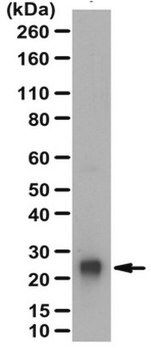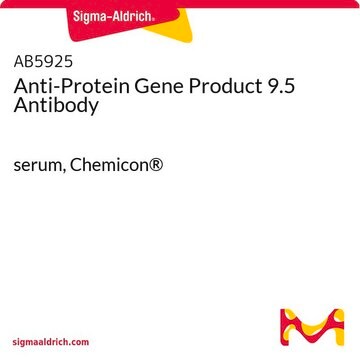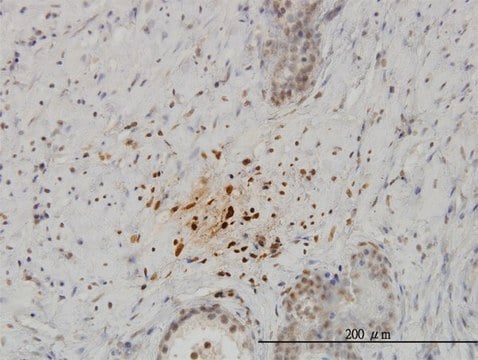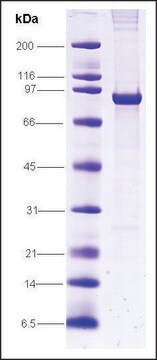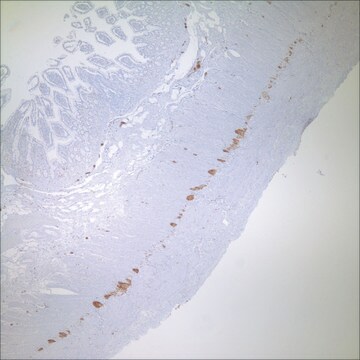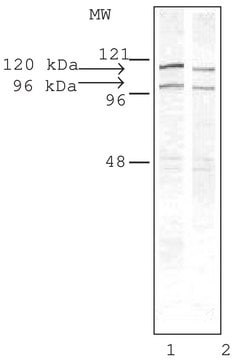AB5898
Anti-Protein Gene Product 9.5 Antibody
serum, Chemicon®
Synonym(s):
PGP 9.5, UCH-L1
About This Item
Recommended Products
biological source
guinea pig
Quality Level
antibody form
serum
antibody product type
primary antibodies
clone
polyclonal
species reactivity
human, rat, mouse
manufacturer/tradename
Chemicon®
technique(s)
immunohistochemistry: suitable
NCBI accession no.
UniProt accession no.
shipped in
dry ice
target post-translational modification
unmodified
Gene Information
human ... UCHL1(7345)
mouse ... Uchl1(22223)
rat ... Uchl1(29545)
Specificity
Immunogen
Application
Optimal working dilutions must be determined by end user.
blocking buffer for 1 hour at room temperature. Primary antibody was diluted in blocking buffer to the appropriate working dilution. Blocking buffer was removed and the slides were then incubated at 4°C for 18-24 hours with AB5898 (1:500). After rinsing in PBS 3 times sections were incubated for 60 minutes at room temperature with Cy3-conjugated secondary antibodies. After mounting in a mixture of PBS and glycerol (1:3) containing 0.1% p-phenylenediamine, sections were examined with a Nikon Microphot-SA epifluorescence microscope.
Neuroscience
Neuronal & Glial Markers
Physical form
Storage and Stability
Analysis Note
Brain tissue
Other Notes
Legal Information
Disclaimer
Not finding the right product?
Try our Product Selector Tool.
Storage Class Code
10 - Combustible liquids
WGK
WGK 1
Certificates of Analysis (COA)
Search for Certificates of Analysis (COA) by entering the products Lot/Batch Number. Lot and Batch Numbers can be found on a product’s label following the words ‘Lot’ or ‘Batch’.
Already Own This Product?
Find documentation for the products that you have recently purchased in the Document Library.
Our team of scientists has experience in all areas of research including Life Science, Material Science, Chemical Synthesis, Chromatography, Analytical and many others.
Contact Technical Service